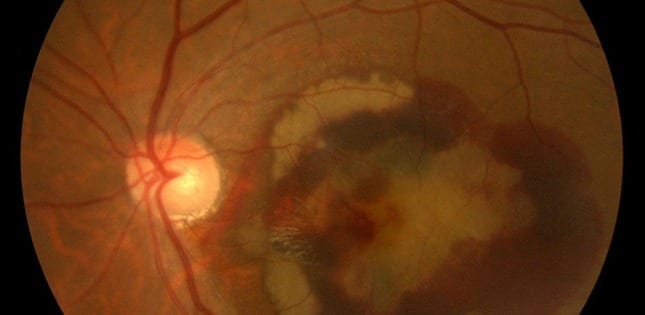
Approximately 80% of all sensory input is received via the eyes, so suffering from chronic retinal diseases that lead to blindness causes a significant decrease in the quality of life (QOL). And because retinal diseases are most common among the elderly, developing pathological analyses and treatments for retinal diseases has become an urgent issue in super-aging countries such as Japan.
Although evaluation of drug candidates against retinal diseases has been done on animal models, serious concerns arise regarding the ethics and costs in addition to the limitations of translating data from animal models to clinical settings.
In vitro cell culture models, an alternative to animal models, enable researchers to investigate specific molecules-of-interest and simply recapitulate complex and chronic conditions. Although studies on organ-on-a-chip for drug discovery have recently been extensively carried out, the organ-on-a-chip approach that targets the ocular tissues has been rarely investigated.
A joint research team from the Graduate Schools of Engineering and Medicine at Tohoku University has recapitulated a pathological condition of retinal diseases on a chip. They first cultured human retinal cells and vascular endothelial cells, mimicking the outermost structure of the retina.
When retinal cells were exposed to hypoglycemic and hypoxic conditions after the cells had grown up, endothelial cells were found to migrate to the side of retinal cells to damage them. This process partially recapitulates neovascularization in wet-type age-related macular degeneration (AMD).
Learn more: Reproducing a retinal disease on a chip
The Latest on: Retinal disease on a chip
[google_news title=”” keyword=”retinal disease on a chip” num_posts=”10″ blurb_length=”0″ show_thumb=”left”]- Prevent Blindness Declares May as First-ever Inherited Retinal Disease (IRD) Genetic Testing Awareness Monthon April 26, 2024 at 8:25 am
Prevent Blindness expands IRD and genetic testing awareness initiative to educate patients on various forms of IRDs, and the importance of genetic testing to confirm diagnosis and possible treatments.
- Closed Poughkeepsie Business to Become Luxury Dog Resorton April 25, 2024 at 4:08 am
Central Bark has announced that it will be opening its first Hudson Valley location. The business has gained popularity across the country for its "Enrichment Doggy Day Care" service that offers dog ...
- PolyU Sets Record with Multiple Awards at International Exhibition of Inventions Genevaon April 22, 2024 at 10:46 pm
Impactful innovations from The Hong Kong Polytechnic University (PolyU) won a record-breaking number of accolades at the 49th International Exhibition of Inventions Geneva (Geneva Inventions Expo), a ...
- CRITERION: Got a chip on your shoulder over missing Nvidia? Here’s the latest intel on AI stockson April 20, 2024 at 1:15 am
The hunt for the most local AI fast follower continues, with investors flocking to a $1.3 billion capital raising from ... Read More The post CRITERION: Got a chip on your shoulder over missing Nvidia ...
- Saturday’s ‘Cocktails for a Cure’ supports research on degenerative retinal diseaseon April 18, 2024 at 5:05 am
In recognition of Gracyn Smith's efforts to raise funds for retinal blindness research, Pennsylvania state representatives have designated April 2024 as Retinal Blindness Awareness Month.
via Google News and Bing News










